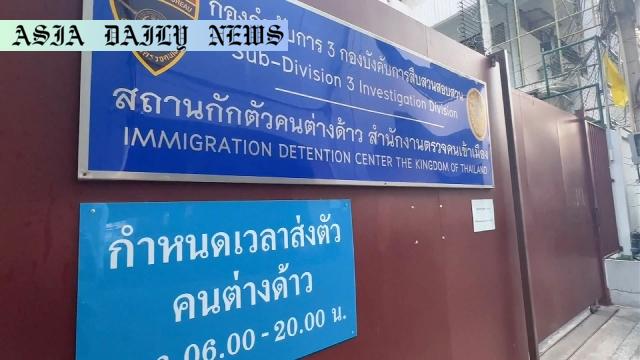UN experts warn Thailand against deporting Uyghurs to China, citing risks of persecution, lack of legal access, and humanitarian concerns.
UN experts urge Thailand to halt Uyghur deportations to China.
Detained Uyghurs allegedly face persecution, lack of legal counsel.
UN recommends asylum procedures, medical assistance for detainees.

Introduction
The United Nations (UN) has raised urgent concerns regarding the potential deportation of Uyghur detainees from Thailand back to China. A coalition of UN Human Rights Council experts has called on Thai authorities to halt these deportations, warning of severe risks of persecution, lack of access to legal resources, and deteriorating human rights for Uyghurs in China. The ongoing situation sheds light on a pressing international issue that requires global attention.
Background on Uyghur Detention
In 2014, hundreds of Uyghurs, members of a predominantly Muslim ethnic group native to China’s Xinjiang region, fled the country in search of refuge from repressive measures by Chinese authorities. Southeast Asia, including Thailand, became a transit point for some Uyghurs aiming to reach Turkey—a nation that shares cultural and religious ties with their community. However, over 300 Uyghurs were detained by the Thai government for entering the country without proper documentation.
While about half of the detainees were subsequently allowed to relocate to Turkey, nearly 100 others were forcibly deported to China in 2015. Recent reports indicate that 48 Uyghurs remain in detention under harsh conditions in Thailand, enduring over a decade in limbo without clear resolution.
Current Concerns of the UN
UN rights experts have issued a stark warning regarding the potential deportation of the remaining 48 Uyghur detainees to China. The experts have emphasized that these individuals risk persecution, imprisonment, and potentially life-threatening conditions upon returning to their home country. China has faced widespread international criticism—including sanctions for alleged human rights violations against Uyghur populations, including reports of mass detentions, forced labor, and surveillance campaigns.
According to the UN, Uyghurs detained in Thailand have been denied adequate access to legal counsel and familial contact throughout their detention. Some among the group are reportedly suffering from serious health issues, further highlighting their precarious situation. These conditions demand urgent humanitarian intervention and legal recourse.
Humanitarian Recommendations
In their statement, the UN experts urged the Thai government to avoid deportations and instead provide the Uyghurs access to official asylum procedures. Such measures are crucial to ensure their safety and uphold international human rights standards. Additionally, the experts recommended the provision of urgent medical assistance and other forms of humanitarian aid to alleviate the detainees’ suffering.
The UN’s recommendations underscore the need for Thailand and the broader international community to work together to address the plight of Uyghur detainees and offer long-term, sustainable solutions for their safety and well-being.
China’s Stance
China, on the other hand, maintains that its policies in Xinjiang are aimed at combating terrorism and promoting development. Beijing has consistently denied allegations of human rights violations, suggesting that Uyghurs in detention are being “re-educated.” However, reports from international organizations, activists, and former detainees continue to paint a grim picture of what Uyghur deportees face upon returning to China.
International Implications
The issue of Uyghur deportation highlights broader questions about Thailand’s human rights commitments and its obligations under international law, including the principle of non-refoulement, which forbids countries from returning refugees to places where they face serious harm.
This development also underscores the challenges faced by Uyghurs across the world, as they attempt to navigate complex geopolitical forces and seek refuge from persecution. The international community must address the broader implications of this crisis to ensure that human rights remain a priority in global diplomacy.
Conclusion
The UN’s call to action regarding the Uyghur detainees in Thailand is an urgent plea to prevent further harm and uphold human rights. It is imperative for Thailand and other nations to collaborate with international experts, ensuring that asylum seekers are given protection and that no individual is subjected to persecution or inhumane treatment. Further, this highlights the need for comprehensive international efforts in resolving systematic human rights violations globally.
Commentary
A Call for Urgent Action
The plight of Uyghur detainees in Thailand shines a harsh light on the broader humanitarian crisis facing this ethnic minority. For over a decade, these individuals have remained trapped in unjust detention, deprived of access to their families and essential legal counsel. The urgency expressed by UN experts is not just a call for action but a reminder of our collective responsibility to protect vulnerable populations from oppression.
Thailand’s Responsibilities
As an influential Southeast Asian nation, Thailand bears a significant burden in determining the future of these detainees. By refusing deportation and facilitating asylum processes, Thailand has the opportunity to uphold its international commitments and safeguard the human rights of those seeking refuge within its borders. Such actions would not only protect Uyghurs but also set a precedent for the fair treatment of all displaced individuals in the region.
Global Collaboration is Key
This crisis is not Thailand’s alone to bear. The global community, with support from institutions like the United Nations, must step in to offer aid, advocate for human rights, and apply diplomatic pressure to prevent further forced deportations. Policy changes and humanitarian support at an international level can provide hope for the Uyghur community and others who face oppression and violence.
In the face of mounting global challenges, we must not turn away from calls for justice. By addressing the immediate needs of these vulnerable individuals and challenging the systems that oppress them, we affirm our shared commitment to a more humane and equitable world for all.


